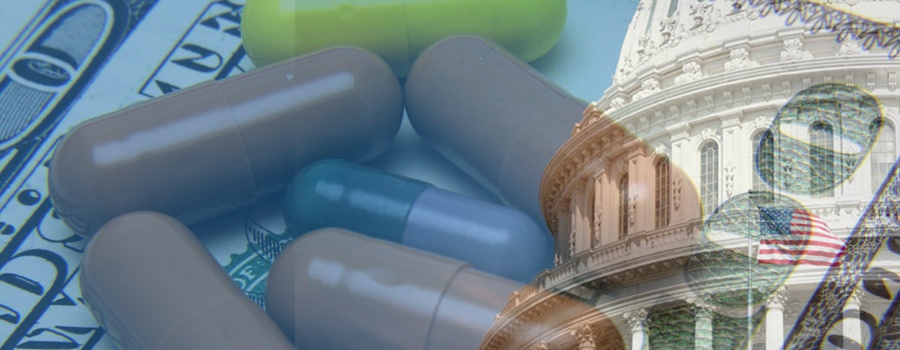House Democrats are calling foul on Republican assertions that cuts to a little-known discount drug program will eventually reduce skyrocketing drug prices. At a hearing Tuesday, Rep. Diana DeGette (D-Colo.) said high drug prices should be investigated separately from the focus on oversight of the drug discount program, known as 340B.
“I think we need an investigation, a robust investigation, and a series of hearings that explore in-depth the reasons for the exorbitant cost of drugs and why the prices continue to rise,” DeGette said.
Last week, Health and Human Services Secretary Tom Price proposed steep cuts in what Medicare reimburses some hospitals for outpatient drugs under the 340B program. In a release, Price said such cuts would be “a significant step toward fulfilling President [Donald] Trump’s promise to address rising drug prices.”
DeGette countered Tuesday that the proposal “would do nothing” to address high drug prices and said making that connection “seems more like fantasy than reality.”
Also on Tuesday, there were other hints at Trump administration efforts to address drug pricing. Food and Drug Administration Commissioner Scott Gottlieb talked in a public meeting about lowering drug prices on a different front — saying that the agency needs to increase generic-drug competition.
Trump routinely criticized high drug prices on the campaign trail last year and promised to take action during his presidency. In June, a leaked draft of an executive order on drug prices, first reported by The New York Times, spoke of facilitating more drug competition but also targeted the 340B program. That strategy immediately drew criticism from Sen. Al Franken (D-Minn.), who said scaling back the program would drive up what hospital patients pay for drugs and force Americans “to choose between health and other basic life necessities, like putting food on the table and a roof overhead for the family.”
The federal 340B program requires pharmaceutical manufacturers to provide outpatient drugs at a significant discount to hospitals and clinics that serve a largely low-income population.
After buying the discounted drugs, the hospitals and clinics can bill Medicare or other insurers at their regular rate, pocketing the difference.
About 40 percent of hospitals nationwide participate in the program and, as House members pointed out Tuesday, the program has grown dramatically in recent years to become a significant force in the pharmaceutical marketplace. The Medicare Payment Advisory Commission estimated that hospitals and other participating entities spent more than $7 billion to buy 340B drugs in 2013, three times the amount spent in 2005.
Advocates of the program say the discounts — and the money hospitals make on payments from Medicare — are necessary to combat skyrocketing drug prices.
But federal reports in recent years from the Medicare advisory board, as well as the Government Accountability Office and the Office of Inspector General, have raised concerns about oversight and abuse of the 340B program.
Rep. Joe Barton (R-Texas) noted “this is a difficult hearing” because while the program was created with good intent, its complexity makes it challenging to understand. For example, hospitals and clinics aren’t required to pass any discounts they receive on to patients — they can direct the money to their general fund.
Looking at his colleagues, Barton said: “We all support the program but it has grown topsy-turvy. We need to put the best minds on this.”
Republican lawmakers are not the only ones raising concerns about 340B oversight. The Pharmaceutical Research and Manufacturers of America, which represents drugmakers, advocates ensuring hospitals are “good stewards” of the money they gain from the program’s discounts.
Peggy Tighe, who represents hospitals in the 340B program as a principal at the D.C. law firm Powers, said “PhRMA has done a particularly good job of getting the attention of the administration. … They haven’t let up on 340B.”
The rule that Price proposed last week would cut what hospitals are paid for drugs from the Medicare Part B program, which covers outpatient drugs including those delivered through infusion.
Currently, Medicare pays hospitals an average sales price plus 6 percent for most of the Part B drugs they purchase. The administration’s proposal is to cut that to average sales price minus 22.5 percent.
340B Health, a coalition that represents hospitals, immediately responded to the proposal saying the cuts would be “devastating” to hospitals and would “lead to cuts in patient services.”
sjtribble@kff.org | @SJTribble | Kaiser Health News, a nonprofit health newsroom whose stories appear in news outlets nationwide, is an editorially independent part of the Kaiser Family Foundation. KHN’s coverage of prescription drug development, costs and pricing are supported in part by the Laura and John Arnold Foundation.
